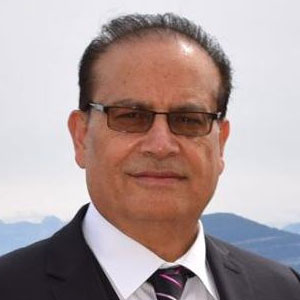
Qamar Bashir
Musharraf self-assumed the title of Chief Executive after successfully ousting the popularly elected government using the strength of tanks and guns, funded by taxpayers’ money and executed by soldiers paid by the same electorate who had chosen the dismissed government. Later, realizing that the title of Chief Executive ranked lower in international protocol compared to heads of state or government, he unceremoniously removed President Rafiq Tarar and declared himself President. This marked what can be termed a second coup d’état, consolidating his power further.
Once in power, Musharraf faced the stark reality that, as an army general, he lacked a direct connection with the people—a necessary aspect of governance in a civilian setup. Recognizing this void, he tasked Tariq Aziz to orchestrate the acquisition of a political platform. The PML-Q willingly aligned itself with Musharraf, becoming a political tool to bridge his administration with the electorate.
Juxtaposing this scenario with the current situation of PTI, we observe parallels post the events of May 9. The army and its operatives systematically targeted PTI, arresting its leadership and subjecting their families to untold hardships. They were presented with a stark ultimatum: renounce PTI and align with Jahangir Tareen’s party to secure their freedom, or remain incarcerated, enduring humiliation and torture. Many capitulated under the pressure, some went into hiding, and a few chose to exit politics altogether. This systematic removal of seasoned politicians from PTI created a significant vacuum, depriving the party of essential political capital and its direct connection to the people.
The vacuum was eventually filled by lawyers and non-political elements spared by the all-powerful army and the dreaded ISI. These lawyers-turned-politicians, while instrumental in keeping the party afloat during its most challenging times, derived their strength from the courts rather than public support. Although skilled in legal matters, they lacked the political acumen and sagacity required to navigate complex and intricate political landscapes. Their lack of constituencies and long-standing connections with electorates made it impossible for them to establish a direct link with the public.
This paradigm places Prisoner No. 804 in a dilemma similar to the one faced by Pervez Musharraf when he transitioned from military dictator to politician, buoyed by sycophants assuring him of unparalleled popularity in Pakistan’s history.
In several of my previous articles, drawing from my four decades of experience within the corridors of power and my official roles as Press Secretary to former President Arif Alvi and Director General for former ministers Fawad Hussain and Shibli Faraz, I proposed a concept paper. This document emphasized the necessity of consciously reintegrating defected politicians, who had been forcefully removed from the party, to restore the much-needed political capital and reconnect with the people.
It appears that Prisoner No. 804 has also recognized the indispensability of political elements within the party. He seems to have realized that for any meaningful and effective resistance movement, relying solely on an army of lawyers-turned-politicians may not suffice. While these individuals have played a commendable role in sustaining the party during its darkest hours, their disconnect from public service and lack of grassroots experience will remain a significant handicap.
In recent weeks, Prisoner No. 804 has reportedly met with several political defectors, including Fawad Hussain, Sheikh Rashid, Usman Dar, and others, while former President Arif Alvi is expected to be given a larger role in crafting an effective resistance strategy. This strategy aims to achieve four primary objectives: secure the release of Imran Khan, free jailed politicians, reclaim the stolen mandate based on Form 45, and oust the illegitimate government.
While these objectives appear legitimate, substantive, and appealing to the public, translating public sentiment into a meaningful movement with a critical mass of people on the streets requires significant political capital. This capital can only be harnessed under the leadership of seasoned politicians. A mass movement of this magnitude would leave the ruling elite with no choice but to yield to these demands or risk plunging the country into total chaos. Such a scenario could even jeopardize the survival of Pakistan’s most powerful institution, the military. As a nuclear state, any instability of this nature could provoke international intervention to secure nuclear assets, depriving the country of its most crucial security guarantee—an asset gifted by civilian scientists and leaders, in light of the military’s dismal performance in past wars.
Ironically, it is deeply painful for patriotic Pakistanis like me to witness the growing hatred and resentment among the public against the armed forces. This sentiment has led to calls for boycotting products and services offered by army-affiliated companies and institutions. With each passing day, this animosity grows stronger, raising concerns globally about the deteriorating confidence of the Pakistani people in their military. It is baffling and disheartening that this glaring reality seems to escape the attention of the army’s leadership.
If the government in power, along with the power brokers who hold the real authority in our country, wishes to salvage whatever respect remains and transform the growing public resentment into admiration for the armed forces, they must take concrete and measurable steps to reverse their missteps. This includes undoing the installation of an illegitimate government and rectifying all subsequent actions that have undermined the country’s institutions. The parliament, reduced to a mere rubber-stamping body, and the judiciary, rendered a toothless and clawless tiger, must be empowered to function independently and with integrity. Only by restoring institutional credibility and ensuring accountability can the leadership hope to rebuild public trust and foster a sense of unity and respect for the nation’s armed forces.
Writer is Press Secretary to the President(Rtd), Former Press Minister at Embassy of Pakistan to France and Former MD, SRBC. He is living in Macomb, Detroit, Michigan






